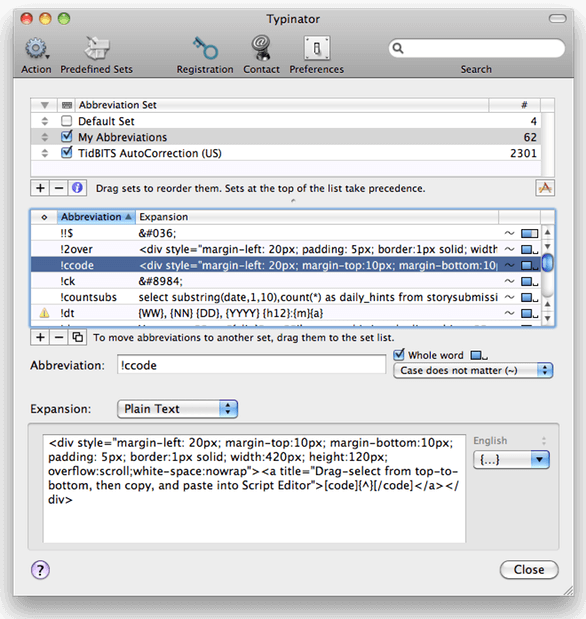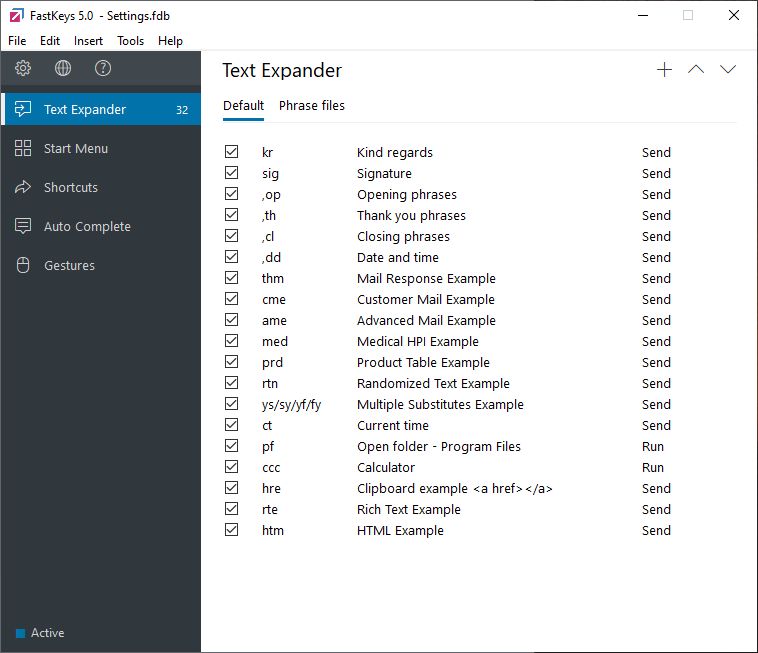

#Textexpander alternative install#
Rare crashes in the newer version of Ubuntuĭownload Command: sudo apt-get install autokey-gtk 4.Ability to modify keyboard shortcuts to remap app launches.Option to set up abbreviations that auto-trigger the phrase.Additional options to add macros, python scripts, etc.Works in all apps, browsers, webpages, etc.Maybe, it’s more tried and tested for the 18.04 LTS version. I further tested it in Ubuntu 19.04 with slightly better results but it wasn’t flawless. I experienced random app freeze and crashes in Ubuntu 19.10. Hence I used Autokeys to remapped the Incognito mode to be triggered with Ctrl+Shift+N.Īutokey has a steep learning curve and slides smoothly in your typing routine. For instance, I use Mozilla Firefox in Linux and I am so used to the Incognito mode being triggered by Ctrl+Shift+N that I still hit the same hotkeys. Alternatively, you can also hit Ctrl+Alt+F7 and you will get a pop to choose from your list of saved text phrases.Īpart from text snippets, you can also manipulate hotkeys to change app launches. As you soon as you type in the abbreviation in any app, Autokey replaces it by the text phrase. Autokey has a GUI wherein you can set up text abbreviations and phrases. It is more of an automation tool that allows setting up macros with your keyboard but it can also double up as a text expander app. After you make changes to the configuration file, Espanso needs to be restarted for changes to take effect.Īutokey is by far the most powerful text expansion tool available for Linux.Pre-built packages which provide support for smileys, Italian letters, Greek Letters, etc.Works in every app and browser irrespective of the environment and interface.The only problem that bugged me was that I had to restart the app every time I made changes to the configuration file. It keeps running in the background with minimal interference.Īlthough Espanso app has a steep learning curve, the official website has fantastic documentation to guide you through the process. You just have to type a colon(:) followed by the abbreviation and the text will get replaced. The best thing about Espanso is that it works on every app, browser, website that you use. You have to input all your shortcuts in the Espanso “default.yml” configuration file in the following format. All the configurations need to be done via the command line. The app is minimal and doesn’t have a GUI.
#Textexpander alternative code#

echo "Do Not Disturb" > ~/.texpander/dnd.txt Just, replace “Do Not Disturb” with your required text phrase and “dnd.txt” with the intended abbreviation. Name the file as DND.txt and the file contents will be “Do Not Disturb”.Īlternatively, you can also create the abbreviation files using the following command.

For instance, if you want DND to be expanded to “Do Not Disturb”, go ahead and create a text file in the “.texpander” directory. The name of these files has to be the abbreviation and the content of the file has to be the phrase. Foremost, you need to manually create text files under the “/home/ubuntu/.texpander” directory. It’s a single shell script file and the setup requires a lot of configuration. Surprisingly, it neither has a GUI nor a command line. Texpander is a minimal text expansion script written in bash.


 0 kommentar(er)
0 kommentar(er)
